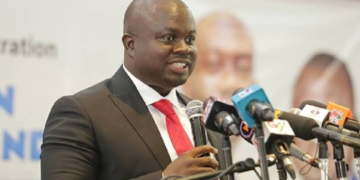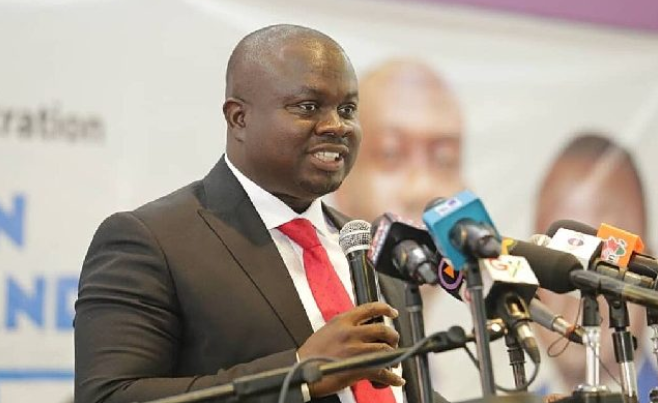The President of the Ghana Journalists Association (GJA), Albert Kwabena Dwumfour, has called on the Ghanaian media to take a bold and proactive stance in tackling the nation’s most pressing challenges particularly illegal mining (galamsey), environmental degradation, and threats to peace and security.
Addressing participants at the media launch of the 29th GJA Media Awards , Mr. Dwumfour emphasized the critical role of the media as custodians of truth and pillars of national development. He urged journalists to uphold professionalism, accountability, and a steadfast commitment to the public interest.
Highlighting the destructive impact of illegal mining, the GJA President painted a dire picture of the current environmental landscape.
“Our lands are being ravaged, our rivers poisoned, and our future threatened. Galamsey is not just an environmental issue it’s a national crisis that demands urgent attention,” he stated.
He charged the media to expose environmental crimes and hold perpetrators to account, insisting that journalists must be firm, fearless, and fair in their reporting.
Touching on rising concerns around disinformation, extremism, and divisive rhetoric, Mr. Dwumfour warned that Ghana’s peace and stability are being tested. He called on media professionals to serve as a unifying force in society.
“In times like these, the media must champion peace and justice. We must not allow misinformation or extremism to tear our nation apart,” he cautioned.
Turning his attention to the upcoming GJA Media Awards, the President underscored the importance of credibility and integrity in recognizing excellence in journalism. He urged the awards committee to uphold the highest standards of transparency and fairness.
Mr. Dwumfour appealed to the media to embrace their role not just as watchdogs, but as active partners in sustainable development.
“Let us use our platforms to protect the environment, promote peace, and push for justice. The future of Ghana depends on our commitment to responsible journalism,” he concluded.
His address comes at a critical time, as Ghana continues to grapple with environmental and socio-political challenges. The media, he stressed, must lead the charge in shaping public discourse and driving meaningful change.



















